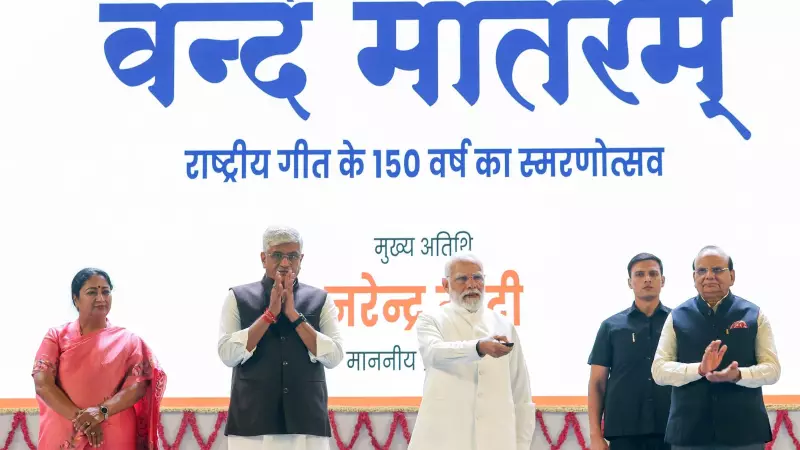
In a stirring address that resonated through the political corridors of Delhi, Prime Minister Narendra Modi delivered a powerful counterpunch to Congress leader's controversial 'Khadge' remarks, turning the political heat several notches higher.
The Patriotic Retort That Shook Parliament
During his parliamentary address, PM Modi invoked the sacred chant of 'Vande Mataram' as a formidable response to Congress leader's comments that had previously stirred the political waters. The Prime Minister's emotional connection with the national sentiment became the centerpiece of his strategic rebuttal.
Context of the Confrontation
The political drama unfolded when Congress leader Khadge made statements that immediately drew criticism from the ruling party. The remarks, perceived by many as controversial, set the stage for what would become one of the most memorable parliamentary exchanges in recent times.
Prime Minister Modi, known for his oratory skills and political acumen, seized the moment to not only counter the opposition's narrative but also to reinforce his government's commitment to national pride and cultural values.
Symbolism of Vande Mataram
The choice of 'Vande Mataram' as the centerpiece of Modi's response carried deep symbolic significance. This historic slogan, which played a crucial role in India's freedom struggle, served as a powerful reminder of the nation's shared heritage and values.
Political analysts observed that by invoking this patriotic phrase, the Prime Minister successfully shifted the discourse from personal political attacks to broader themes of national identity and unity.
Political Ramifications and Public Response
The immediate aftermath saw social media platforms buzzing with reactions from both sides of the political spectrum. Supporters of the ruling party hailed Modi's response as a masterstroke, while opposition leaders attempted to contextualize their original remarks.
This exchange comes at a crucial juncture in Indian politics, where every parliamentary session and public address carries significant weight in shaping public opinion and political narratives.
Broader Implications
The Vande Mataram reference and the subsequent political discourse highlight several key aspects of contemporary Indian politics:
- The continued relevance of historical and cultural symbols in political discourse
- The evolving nature of political confrontations in parliamentary democracy
- The strategic use of nationalistic sentiments in political communication
- The importance of rhetorical strategies in modern political leadership
As the political temperature continues to rise, this exchange between the Prime Minister and the Congress leadership is likely to have lasting implications for the upcoming political battles and public discourse in the nation.





